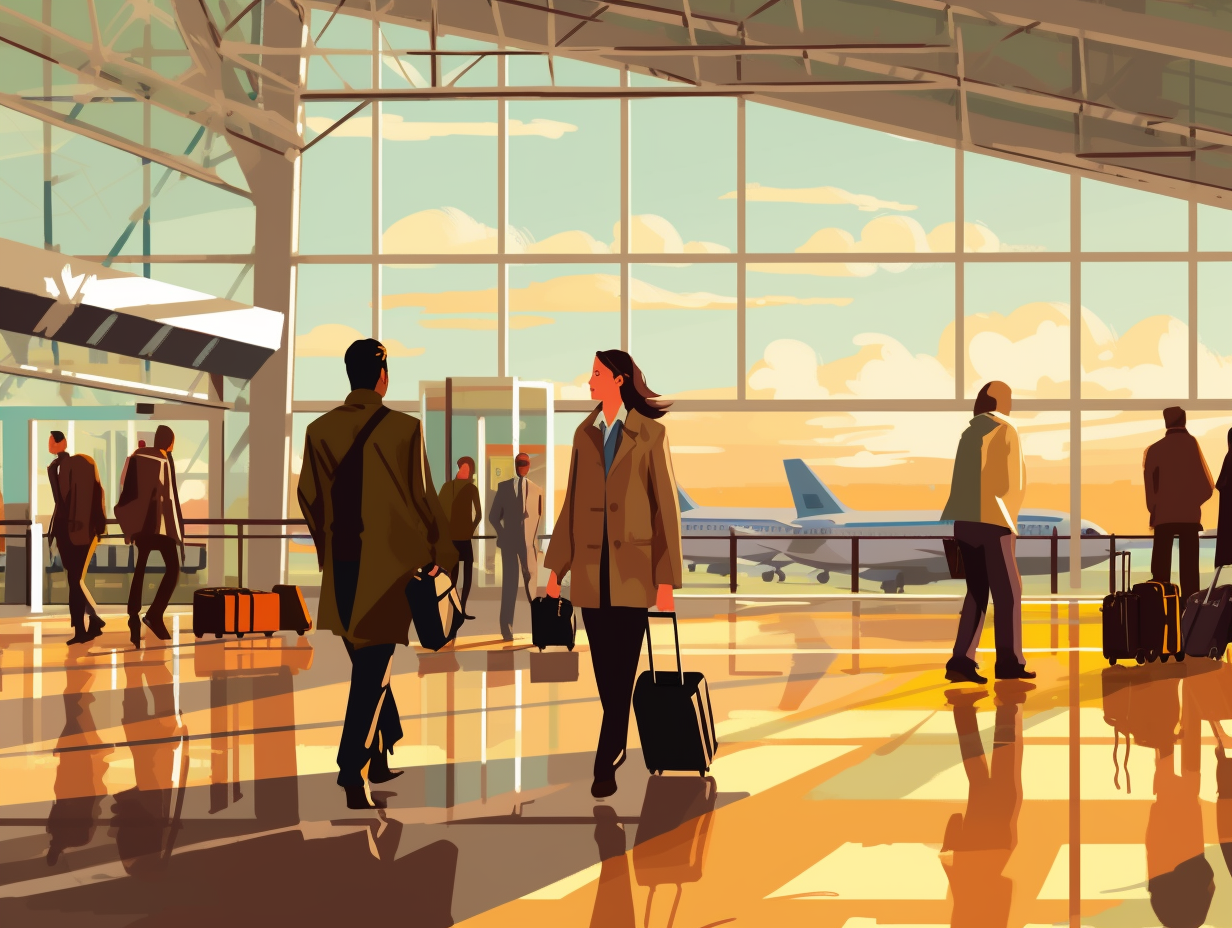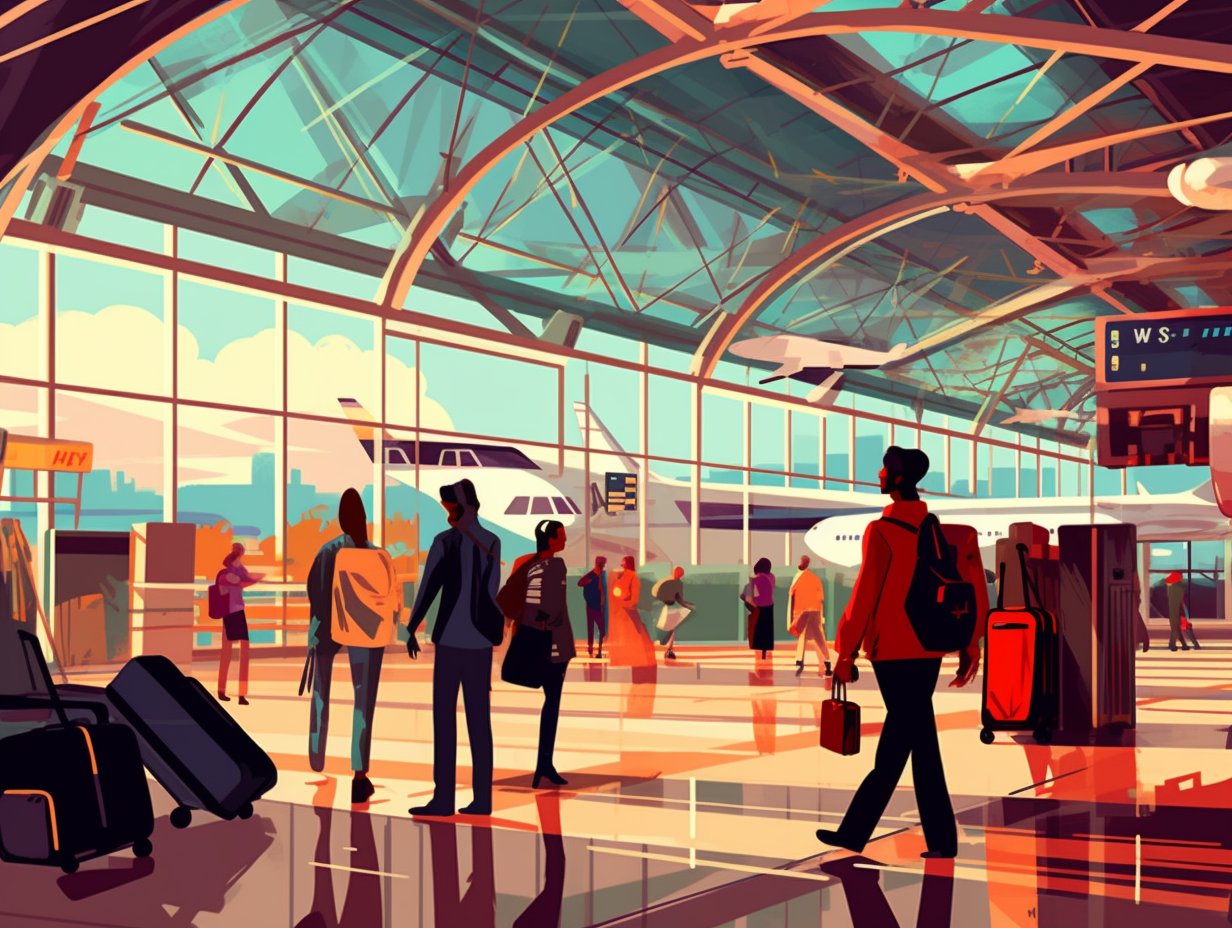Jet Set Secrets: 8 Fascinating Fun Facts About Airports You Never Knew

1. Hong Kong's Airport IMAX and Skydeck
Stranded amidst the clouds? Why not spend an evening at the pictures! Hong Kong International Airport's got you covered with their very own IMAX: The aviation enthusiasts' paradise offers a Skydeck for stunning visuals of aircraft take-offs and landings, as well as the Aviation Discovery Center that delves into commercial aviation and principles of flight, though some may find it a tad too compact.
Source => tripadvisor.com
2. McCarran Airport's Lucrative Slot Machines
Next time you land in Sin City, make sure to cash in your frequent flyer miles for self-restraint points: McCarran International Airport raked in almost $40 million from its slot machines in 2018, but beware, they're known to have a lower return to player rate compared to the sparkling casinos of the Vegas Strip.
Source => thepointsguy.com

Did you know that airplanes are like a heavy-metal concert with aluminum as the lead star? Discover how this lightweight yet strong metal takes the stage in aircraft construction and learn about its supporting acts! 🤘🎸✈️
=> Fun Facts about Airplanes
3. Atlanta's Record-Breaking Busy Airport
Ready for takeoff into the land of records and busy bee terminals, where planes are practically playing hopscotch on the runway? Prepare for liftoff: Atlanta's Hartsfield-Jackson International Airport takes the crown as the world's busiest airport, with over 107 million passengers passing through its gates in 2018.
Source => dogsonplanes.com
4. Changi Airport's Tallest Indoor Waterfall
Water you waiting for? Singapore's Changi Airport is making a splash with a jaw-dropping indoor feature: The HSBC Rain Vortex, standing at 40 meters tall, is the world's tallest indoor waterfall, found within the Changi Jewel mall and surrounded by a lush forest area – perfect for water cooler conversations and free day shows, with a spectacular light and sound performance making evenings an unforgettable experience!
Source => theworldtravelguy.com

5. Ancient Roman Villa at Southampton Airport
Before airports were busy making flight or flight decisions and Romans rocked out in togas, there was an 'Air-villa' party happening in a certain corner of England: Excavations in 1925 at Swaythling Church in Hampshire uncovered the remains of a Roman villa on the outskirts of what is now Southampton (Eastleigh) Airport, showcasing the area's historical depth beyond takeoffs and landings.
Source => heritagegateway.org.uk
6. Helsinki Airport's Sci-Fi Sleep Pods
Sleepless in Helsinki: a blockbuster romance story of weary travelers and futuristic sleep pods that turn layovers into a sci-fi slumber party. Seriously though: Helsinki Vantaa International Airport offers "GoSleep" pods at Gates 18 and 38, where for just 5 Euros per hour, passengers can transform ergonomic seats into private beds, complete with noise-free environments, luggage storage, and electronic charging facilities.
Source => sleepinginairports.net
7. Vancouver Airport's Indoor Rainforest and Aquarium
Who needs a plane ticket to experience the wonders of Canadian nature when you're already in the airport, eh? Take shelter from the rain of delays and cancellations at Vancouver International Airport like a true beaver family: by seeking refuge in a mini-rainforest and making new finned friends in the depths of a 30,000-gallon aquarium that houses a living kelp forest. The serious reveal: Travelers at Vancouver International Airport can enjoy a relaxing layover exploring a verdant indoor oasis that replicates the Canadian rainforest ecosystem and marveling at the captivating underwater world within the impressive airport aquarium.
Source => newsweek.com
8. Daocheng Yading: World's Highest Civilian Airport
If you ever wanted to know what it feels like to be on cloud nine, here's your chance: Daocheng Yading Airport in China is the world's highest civilian airport, perched at a lofty elevation of 4,411 meters (14,472 feet) above sea level, with a 4,200-meter-long runway and 45-meter-wide terminal designed to handle up to 280,000 high-flying passengers annually since 2013.
Source => en.wikipedia.org
Related Fun Facts




















